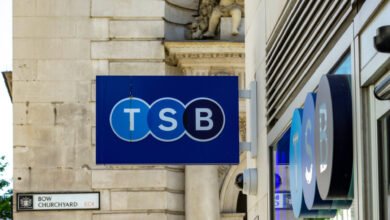Are Fixed Rate Mortgages Crippling the Housing Market in 2024?

Over the past couple of years, a peculiar phenomenon has gripped the US housing market, creating a state of stagnation unseen in decades. What’s causing this standstill? According to the New York Times report, it’s the lock-in effect fueled by fixed-rate mortgages, where homeowners find themselves in financial limbo, unable to take advantage of the current market conditions.
Is the Lock-in Effect Crippling the Housing Market in 2024?
Imagine this: while mortgage rates have soared to around 7 percent, the average American household with a mortgage is sitting pretty on a fixed rate that’s a staggering three points lower. This significant gap between current market rates and locked-in rates has created a nationwide paralysis in the housing market, trapping homeowners in properties they may be eager to leave.
For those not planning to move anytime soon, the low rates secured during the pandemic offer long-term benefits. However, for many others, these favorable rates have turned into a complication, disrupting household decisions and the broader housing market dynamics.
The Magnitude of the Issue
Research from economists at the Federal Housing Finance Agency (F.H.F.A.) reveals the scale of this lock-in effect. Approximately 1.3 million fewer home sales occurred in America during the period from the spring of 2022 through the end of 2023, directly attributed to this phenomenon.
This stagnation has ripple effects. Locked-in households aren’t relocating for better opportunities, downsizing, or opening up homes for first-time buyers, leading to inflated prices and market congestion.
Unprecedented Circumstances
The extent of this dilemma becomes apparent when examining historical data. Never before, between 1998 and 2020, had more than 40 percent of American mortgage holders been locked into rates more than one percentage point below market conditions. By the end of 2023, however, about 70 percent of all mortgage holders found themselves in this predicament.
This situation, characterized by such a high percentage of homeowners being locked into significantly lower rates, is unprecedented and underscores the deep-rooted challenges in the current housing landscape.
The Root of the Problem
The roots of this issue lie in the rapid rise of rates following the pandemic-induced lows. While homeowners initially scored fantastic deals on housing during the pandemic, the abrupt surge in rates made it financially unwise for many to consider selling their homes.
According to Julia Fonseca, a professor at the University of Illinois at Urbana-Champaign, locked-in rates are akin to a valuable asset. She estimates that these rates are worth approximately $50,000 to the average mortgage holder, significantly influencing household decisions.
The Ripple Effects
The repercussions of this housing market paralysis extend beyond real estate. Mobility rates for homeowners with mortgages declined notably in 2022 and 2023, affecting labor market dynamics. Homeowners who are locked into lower rates are less likely to relocate to areas with higher wage growth, creating bottlenecks in talent acquisition and wage escalation.
Seeking Solutions
While the situation appears dire, efforts are underway to alleviate the pressure. President Biden has acknowledged the concerns surrounding interest rates and proposed temporary tax credits for new buyers and sellers. However, for homeowners reluctant to sell, these incentives may fall short compared to the substantial value locked-in rates offer.
In conclusion, the housing market’s paralysis, fueled by fixed-rate mortgages and the lock-in effect, presents a formidable challenge with far-reaching implications. Addressing this issue requires innovative solutions that balance the interests of homeowners, prospective buyers, and the broader economy.
ALSO READ:
Housing Market Predictions for the Next 2 Years
Is the Housing Market on the Brink in 2024: Boom or Bust?
Housing Market Predictions Remain Subdued for This Year
Housing Market Crash: Are We Headed for Another Bubble Burst?





